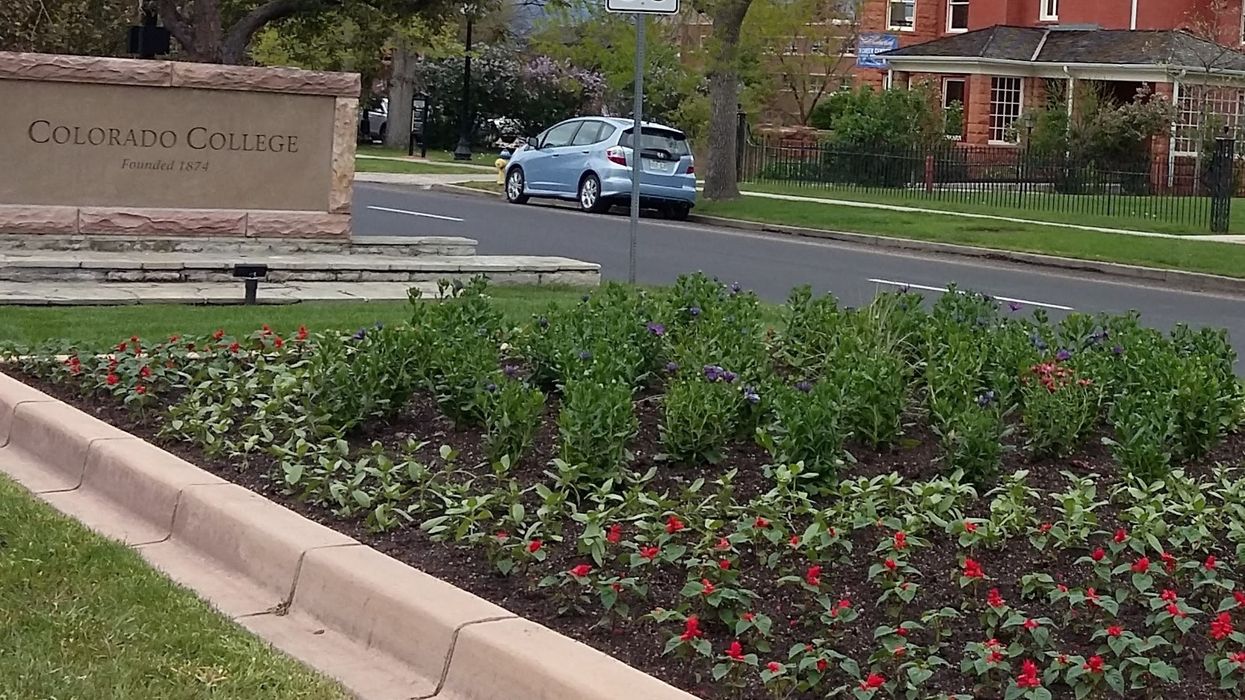Twenty million college students have the capability to decide presidential elections — if they vote.
Not having classes on Election Day would increase their likelihood of doing so, by giving students the time to vote in person and wait in line as long as they need.
As we wrote this summer in Sabato's Crystal Ball, the election blog of the University of Virginia Center for Politics, obstacles traditionally exist for students even after they register — with local election officials targeting their ballots for challenges or not providing polling places on or near campuses.
This year, the coronavirus pandemic and heightened attention to election security have added unique challenges.
Many countries across the world hold elections either on a weekend or a public holiday. While the United States will not switch to either any time soon, colleges and universities still have time to arrange for their students and employees to be free to fully engage in the democratic process.
They should give students the day off from academics Nov. 3 so they do not have to choose between furthering their education and carrying out their civic responsibility.
A few already do, including Northwestern Law School since 2016 and Loyola Law School starting in 2018. But most do not. And neither American University nor the University of North Carolina at Chapel Hill have canceled classes despite student requests to do so. What's wrong with them?
Last week, however, Colorado College decided to cancel classes after second-year student Bennett Okun promoted the idea in the campus newspaper.
Acting provost and faculty dean Claire Garcia, in a message also signed by Okun, said the day off is "so that our students may have the time to focus on their role in the process, whether it be volunteering to work at the polls in a year when fewer people are available to volunteer because of the threat of Covid-19 or simply having the time to wait in lines that may be hours long to vote."
The issues that eligible voters younger than 24 are most passionate about are not the same as those of older voters. A study by Tufts University found the issues currently most important to the newest cohort of would-be voters are race relations, environmental sustainability and health care.
And yet climate change did not even make the cut as one of the six topics moderator Chris Wallace of Fox News promised to focus on Tuesday in the first debate between President Trump and former Vice President Joe Biden.
With the environment, Black Lives Matter, economic opportunity, the Supreme Court, gun control and a woman's right to choose all part of this year's presidential campaign, college students have never been more motivated to vote.
Many cast their first-ever vote for president while in college. Studies suggest that once someone casts a first vote, they are more likely to remain engaged and continue to vote in subsequent elections. We cannot allow them to miss this election and thereby be more likely be disengaged citizens.
Yes, college administrators have much on which to focus now. We get it. But how hard should the decision be to cancel class with the presidency at stake?
In the congressional midterm election two years ago, 7.5 million college students went to the polls, Tufts researchers found, a 40 percent turnout that was double from four years earlier.
Everything should be done to pave the way for a much higher turnout this fall.
Students could also use the time off to fill the void created by older generations who often serve as poll workers, but are loath to do so in 2020 to preserve their health during the pandemic.
"The vote is precious. It is the most powerful non-violent tool we have in a democratic society, and we must use it," the late civil rights icon and Georgia Congressman John Lewis often said. "And so you must go out all across America and tell young people, and people not so young, tell all of us: Vote. The vote is powerful."
We owe it to this generation to do everything possible to have the opportunity to exercise that power.
And next year, Congress can right the wrong simply by moving Presidents Day to the first Tuesday in November — thereby making Election Day a national holiday and giving everyone the opportunity to vote at no cost to their income or studies.
Part of the rationale against a new national holiday appears to be the economic cost, which would be substantial. This solution addresses that by shifting an existing holiday from a date without particular significance beyond the prominence of presidents born in February.
Doubtless George Washington (Feb. 22) and Abraham Lincoln (Feb. 12) would appreciate having their birthdays honored with far more people participating in democracy rather than being associated with mattress sales.
College and university presidents should cancel classes now. They should not even have to be asked.



















Trump & Hegseth gave Mark Kelly a huge 2028 gift